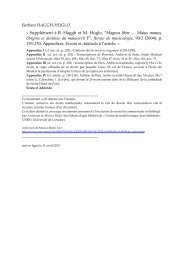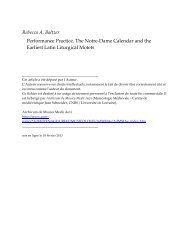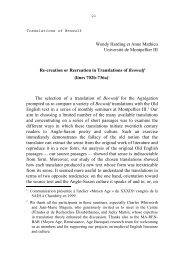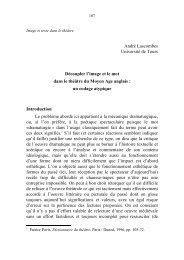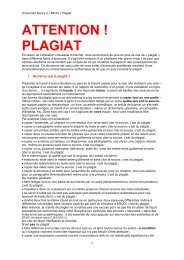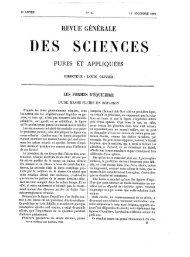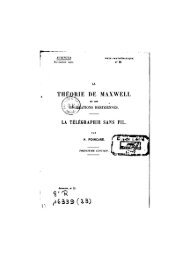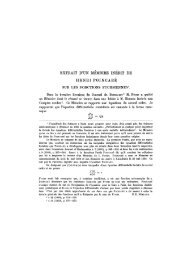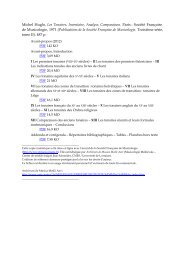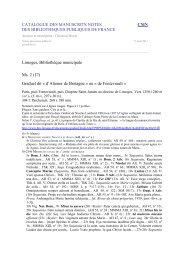You also want an ePaper? Increase the reach of your titles
YUMPU automatically turns print PDFs into web optimized ePapers that Google loves.
112_(12U<br />
Stephen Morrison<br />
probably have been conversant with this standard medieval definition.<br />
It is the only example I have come across in which the concept lytle<br />
werede is quantified, and if Isidore's definition is accepted, great strain<br />
is placed on the conviction that Old English writers were thinking in<br />
terms of five hundred men every time they availed themselves of the<br />
phrase. It may, of course, be a convenient approximation, a suitably<br />
rounded figure indicative of size only in the impressionistic,<br />
essentially non-numeric sense. Nevertheless, the overriding<br />
characteristic of Old English werod in the phrase lytle werode is its<br />
smallness.<br />
The equation choors: lytle werede is an approximation, then. Or<br />
rather, it is a piece of literary short-hand. At least one other writer, this<br />
time a poet, matches werod with cohors: the anonymous poet of<br />
Genesis A. In chapter 14 of the book of Genesis we learn, among other<br />
things, that Abraham rallied his troops in order to save his brother Lot,<br />
captured in battle. Most students of the poem are of the opinion that<br />
the poet supplemented his biblical text with material drawn from the<br />
patristic commentary tradition; one recent overview accords some<br />
importance to Bede's In Genesim as a likely source. 20 The relevant<br />
passages from the poem and Bede's commentary are these:<br />
[Gen. 14.14] Quod cum audisset Abram captum uidelicet Loth fratrem<br />
suum, numerauit expeditos uernaculos suos trecentos decem et octo...<br />
Loth wæs ahreded,<br />
eorl mid æhtum, idesa hwurfon,<br />
wif on willan. Wide gesawon<br />
freora feorhbanan fuglas slitan<br />
on ecgwale. Abraham ferede<br />
suðmonna eft sinc and bryda,<br />
æðelinga bearn, oðle nior,<br />
mægeð heora magum. Næfre mon ealra<br />
lifigendra her lytle werede<br />
þon wurðlicor wigsið ateah,<br />
20 . Michael J. Swanton, English Literature before Chaucer, London: Longman,<br />
1987, p. 82.



